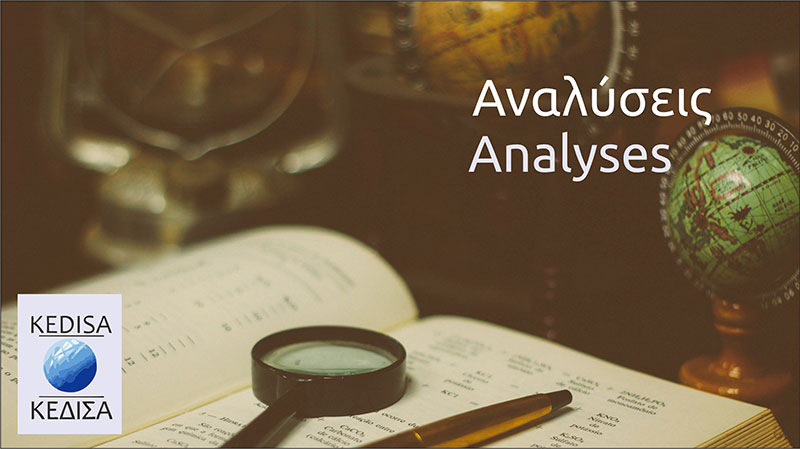By Jakub Šrámek, Intern at KEDISA
Despite recent elections and the formation of a new government in the Czech Republic, its stance on climate and energy policy will change little. Contrary to most other policies, the new government’s stance on energy policy seems to be similar to the previous government. The Czech Republic places priority on nuclear energy and is wary of promoting gas power plants as this could increase the country‘s dependency on Russian gas.
In 2020 the Czech energy mix was made up of 52% fossil fuels (most of it is coal, followed by gas), almost 40% nuclear power, and close to 7% renewable energy. Coal still accounts for almost half of total domestic energy production, despite a 36% decrease since 2009 (it is the country’s only domestic fossil fuel). The Czech Republic has no significant production of natural gas or oil and is fully dependent on gas and oil imports.
The biggest challenge for the Czech Republic is phasing out coal, which has been the backbone of its energy mix for decades. The new Czech government aims to phase out coal in energy production by 2033 while increasing the country’s reliance on nuclear and renewable sources, according to its policy program published in January 2022. The previous government hadn’t approved any concrete target for stopping coal use but its advisory body had recommended 2038, a plan that environmental groups said wasn’t ambitious enough.
Nuclear energy has relatively wide support in the Czech Republic. Recent representative public polling in the Czech Republic showed support for the use of nuclear power at 65%. This is also supported by the fact that no parliamentary party in the Czech Republic opposes nuclear power. The Czech Republic currently operates six commercial nuclear power units – four at the Dukovany site and two units at the Temelin nuclear power plant, which together provides close to 40% of its electricity production. The new government is now moving forward with building a fifth nuclear reactor at Dukovany. A tender for a multi-billion dollar unit at Dukovany plant should launch this year after the Russian and Chinese companies were suspended due to security concerns (despite the wishes of pro-Russian president Milos Zeman). The companies still in the running are US based and Canadian owned Westinghouse, France’s EDF and South Korea’s KHNP. The project will be financed by the government and the new reactor should be up and running by 2036. There are also plans for building three more reactors in future decades.
Nuclear power in the Czech Republic is seen as the only way to reach the EU climate targets since renewable energy only covers around 7% of the mix. The other option would be natural gas, but its share is slightly over 5% and it would mean more dependency on Russian supply. The opposition to the new reactor comes predominantly from abroad. The biggest opponent is Austria, whose capital Vienna is only 100 kilometres south of Dukovany power plant. Neighboring Germany is also a strong opponent of nuclear energy. This divide can be seen on the European level as well.
France, Finland, the Czech Republic and other central and eastern European countries have jointly pushed for including nuclear energy in the European Union’s sustainable finance rules. The proposed rules include nuclear energy and natural gas as „sustainable“ power sources. On the other hand, the rules are relatively strict. The proposal includes criteria for nuclear waste management that are a potential roadblock and might discourage significant nuclear power investments. There is no doubt that nuclear energy is a low-emission source. The question is how it will be defined in the taxonomy of green investments. However, as the state has decided to finance the construction of the unit in Dukovany, any forthcoming EU decision on this matter does not pose a major problem for the project’s financing.
The European Green Deal made headlines in Czech media outlets after president Zeman‘s New Year speech. In it, president Zeman said that he considered the deal to be the result of making environmentalism a religion. At the same time, he identified it as the leading cause of the rise in energy prices in the Czech Republic and urged the government to „get out of the so-called Green Deal for Europe“. Prime minister Petr Fiala responded by saying that the deal was agreed in 2019 and that there is no way to „get out of it“. According to the new government, the Green Deal is an opportunity to invest in sustainable development and in modernising the economy and the whole country. On the other hand, PM Fiala has criticised some EU green proposals like the combustion engine ban by 2035, which he believes would pose an existential risk for many people. But the biggest issue for the government is nuclear energy and its status in the future of the EU. So, in conclusion, the new government is prioritizing nuclear energy similarly to its predecessor. The main reason for it is the goal of self-sufficiency, to avoid natural gas reliance on Russia and limited access to renewable energy sources because of geography. The government shortened the timeframe for phasing out coal but it is going to be quite difficult since the new reactor should be operational five years after the coal is out of the picture. As far as the Green Deal is concerned, the new government is ready to play with the cards they were dealt to make the most out of it.
Sources:
Czech Daily (2022). Fiala: If Zeman had a problem with the Green Deal, he should have told Babiš. (https://czechdaily.cz/fiala-if-zeman-had-a-problem-with-the-green-deal-he-should-have-told-babis/0).
Gillespie, T. – Ponikelska, L. (2022). Czechs Look to Exit Coal by 2033 Despite Calls to Move Faster. Bloomberg. (https://www.bloomberg.com/news/articles/2022-01-07/czechs-look-to-exit-coal-by-2033-despite-calls-to-move-faster).
Gosling, T. (2021). Czech nuclear energy ambitions face stiff tests. DW News. (https://www.dw.com/en/czech-nuclear-energy-ambitions-face-stiff-tests/a-56793586).
Hibbs, M. (2022). Amid Energy Crisis, EU Fights Over Whether Nuclear Is Green. Foreign Policy. (https://foreignpolicy.com/2022/01/13/nuclear-energy-green-europe-eu-climate/).
IEA (2021. Czech Republic 2021. (https://www.iea.org/reports/czech-republic-2021).
Moržol, M. (2021). Dostavba Dukovan má v Česku podporu. EU zatím ale o budoucnosti jádra jasno nemá. Deník. (https://www.denik.cz/cesko-a-eu/energetika-jaderna-elektrarna-dukovany-20210811.html).
OTE (2022). Národní energetický mix. (https://www.ote-cr.cz/cs/statistika/narodni-energeticky-mix).
Reuters (2022). New Czech government sees coal exit by 2033, backs nuclear power. (https://www.reuters.com/markets/commodities/new-czech-government-sees-coal-exit-by-2033-backs-nuclear-power-2022-01-07/).
Ritchie, H. – Roser, M. (2020). Czechia: Energy Country Profile. Our World in Data. (https://ourworldindata.org/energy/country/czech-republic#what-sources-does-the-country-get-its-energy-from).
World Nuclear News (2022). We will speed up everything that we can (https://www.world-nuclear-news.org/Articles/CEZ-We-will-speed-up-everything-that-we-can).
World Nuclear News (2022). Czech Republic weighs strategic value of nuclear sector (https://www.world-nuclear-news.org/Articles/Czech-Republic-weighs-strategic-value-of-nuclear-s).
Zachová, A. (2021). Czech stance on climate policy to stay in a rut despite new leadership. Euractiv. (https://www.euractiv.com/section/politics/short_news/czech-stance-on-climate-policy-to-stay-in-a-rut-despite-new-leadership/).
 English
English

